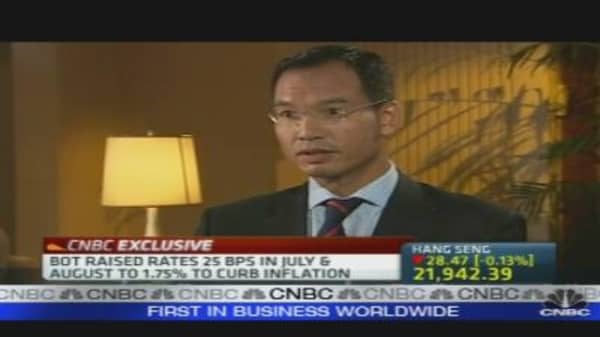As Western economies struggle to rein in their crippling deficits, leaders should take a page out of Thailand's economic handbook, advised Korn Chatikavanij, the country's Finance Minister.
"In Europe, what I'm concerned about is that they are moving towards fiscal tightening which is something that we did in the immediate aftermath of the financial crisis with disastrous consequences," Korn said on CNBC Monday.
"There needs to be a balance that is struck, to make sure that national balance sheets are sound, but the level of demand in the economy is sufficient to keep the economies going," he continued.
"Thailand was the canary in the cage, we sang but nobody in the West listened, unfortunately," Korn added.
What has happened in the western financial sector is a mirror image of what happened in Asia, he noted, adding that the west is so big that the impact is being felt globally in a way that Asian crisis didn't.
At a CNBC breakfast meeting held earlier on Monday, Korn said global growth would remain disappointing, though the U.S. economy is not likely to face another recession.
The Thai economy, unfazed by a political crisis that rocked the nation just four months ago, is currently enjoying robust growth with the country's gross domestic product is expected to rise seven and eight percent in 2010, Prime Minister Abhisit Vejajiva said in a CNBC interview.
The government now hopes to take advantage of the baht's recent strength, which is at its strongest level in 13 years.
"We are trying to relax the rules so that Thai nationals, both corporate and individuals, can export currency in a more fluid manner for investments and for other purposes, so that I think should relieve some of the pressures on the currency," Korn said.
Officials are also accelerating investments in infrastructure projects that require substantial purchases of foreign capital goods, he continued.



